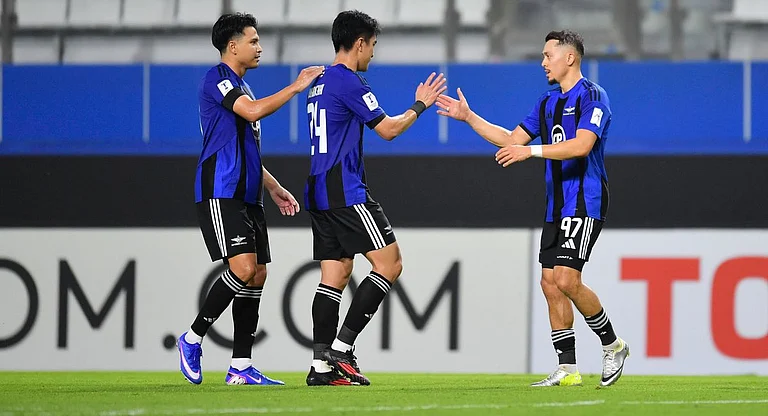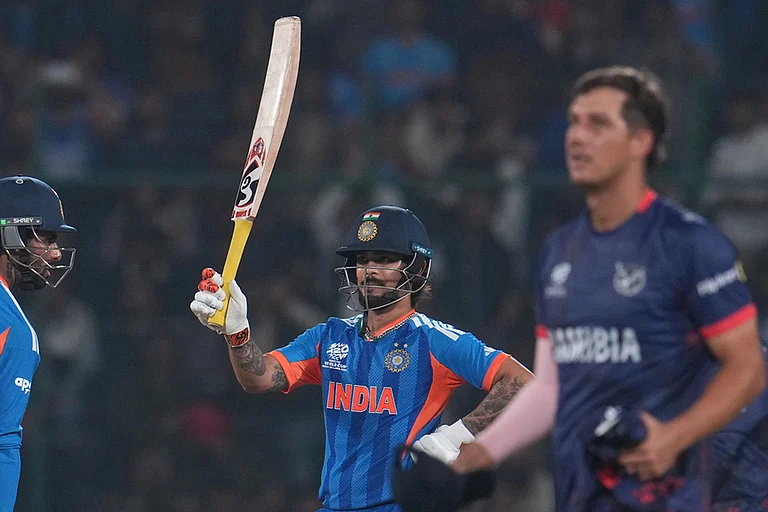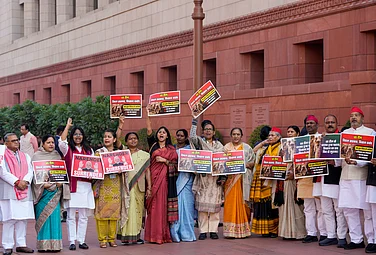It may sound terrible but almost a year into the ongoing war in Ukraine, we have now just gotten used to it. It’s not a big deal anymore. It has even stopped being a good, nice-to-read article on the fifth page of popular newspapers. It’s just a ‘something’, wedged between news of city traffic and inflation. It’s just there. It looks like it will be there forever. Of course, changes on the front, drastic war crimes committed by Russians or something on a big scale can attract the audience for a minute. But people just return to their daily activities within minutes.
Living in Poland, we are mostly interested in that part of the news which concerns our country. For example, the tragedy of Russian attacks destroying electricity in big Ukrainian cities is important because it could bring more refugees to Poland. Rockets are news only when one of them misses Ukraine and hits the village Przewodowo near Lublin and two people die (it’s possible that the rocket belonged to Ukrainian air defence).
It doesn’t mean that Poles have stopped helping Ukrainian families living in Poland or organising transport to and from Ukraine. They still do it. But after months, that energy has been diluted. Even Ukrainians living in Poland are slowly doing the same. Children are going to school or kindergarten; adults are going to work. No one can forget about the war but everyone needs to live their lives.
Thanks to the Polish government, Ukrainian citizens are being treated the same as Polish citizens right from Day 1. They get health insurance, social security with some benefits for children, the possibility to legally work and education free of charge—including kindergarten.
Of course, things in Poland have changed. Most Ukrainians stay in big cities. In Warsaw, which had around 2 million inhabitants before the war, at least half a million refugees have arrived. It means that 1 in 5 people living in the capital of Poland right now are from Ukraine. In buses, shops, metros and offices, you can hear the Ukrainian language or at least one of the staff speaking Polish with a Ukrainian accent. Rents have skyrocketed, almost doubling within the year. Part of it is connected to inflation but it’s mostly because of the influx of refugees. Even street advertisement boards and radio/television broadcasts have started using the Ukrainian language. In just a year, Ukrainians have become the biggest minority in Poland, making up 3-4 million in a country of 38 million—that is 10 percent of the total population.
Because the refugees are mostly women and children (men can’t leave Ukraine due to military obligations) there is a problem finding paediatric help and antibiotics. In the obstetric wards of some hospitals, more than 50 percent of the babies delivered are Ukrainian. Also, in schools and kindergarten sections in parts of the country, a third of the newer classes are filled with children from Ukraine. Fortunately, our languages are similar, and Ukrainians assimilate easily. But what will happen when more refugees come to Poland due to very cold winters and the lack of heating and electricity back home?
In the eastern part of Poland, tensions are especially high because of a fear that the war will cross the border or that Poland will enter into a full-scale war with Russia (but people who think that are a minority).
Of course, that’s the general view. In reality, most people do not think about the war at all. For them, these are just stories of people and small pieces of anecdotal truth recited by Ukrainian refugees. There are plenty of them and each of them is different. They are IT professionals or highly qualified specialists who came in nice cars and with money to rent apartments. Some business owners adapted quite quickly and easily to the Polish environment and started their businesses in Poland. Then there are poor women or families with PTSD and trauma, wounded and partially healed people, struggling to survive in a new country.
Almost everyone has some story to share. I’ll share mine.
Karina and Jana
I met Karina and Jana when they came to Poland to study. Both were 18 years old at the time. Their mother stays in Ukraine where she owns some shops. It appears that she does not have a problem with money. In the beginning, they did not speak any language except Ukrainian. So, they hired a Ukrainian student living in Poland for the last five years who was fluent in Polish. Their main problem was with renting an apartment. Regardless of their ability to pay, it was difficult to find accommodation. I helped them do it. A few months later, I happened to meet them by chance. Karina and Jana had started to study, and spoke decent Polish after just six months in an intensive course. I asked their mother why she had decided to let the daughters stay on in Poland. She told me that her daughters needed to study in Poland stay here to work and settle. She did not believe that the war will be over anytime soon and that the situation would continue to be difficult long after it is. She missed her children and it wasn’t an easy decision but it was not forced on them.
Luba
Luba’s husband stays in Ukraine and fights on the front, in places with some of the heaviest deployments. Each day, she was worried about his life. But thank god he managed to survive! She left Ukraine when Russian troops occupied her village. She said, “I left with some bags that I had grabbed and a car. A few hours later, the Russians entered the village.” She stays with three other families (only mothers and children, no men) in a big house where they have a common kitchen and bathroom and each family has their own room. She lives with her three children in one room. She works as a cleaning lady in a company on 12-hour shifts every second day. The rest of the time she cleans private houses to make an extra buck. Her children go to school. On afternoons, the eldest kid or the mother, depending on who is free, takes care of the children of the house (all 10 of them). It’s very difficult to take care of a large family on a single, small salary. However, each week, she manages to pack cans, clothes and some food and send it to her husband in Ukraine. She always looks tired but maintains a smile and a happy face. I helped her with some food and clothes and hired her to clean my house, even when there was not a lot to do. Quite recently, she stopped calling, and through some other friends, I got to know that she had returned to Ukraine when the Ukrainian army recaptured her village in one of its recent counter-offensive operations.
Ivan
Ivan was a mystery from the start. Young, strong and without family, everyone felt he shouldn’t have left Ukraine. Most of his friends decided to stay and fight, or the military police had stopped them on the border. Somehow, he was able to cross the border and leave Ukraine.
He is quite a decent net programmer with fluent knowledge of English and has good references. He easily found a well-paying job in Poland. I met him during one of my coffee breaks at work. Later on, I found out that in his free time, he was responsible for programming drones for the Ukrainian military. But when I tried to talk to him about it, I learned that he had quit and somehow managed to get a US visa.
I do what I can to help refugees. Earlier, I was very driven like many of us and hopeful that the war would end soon. But, to tell the truth, after one year of the war, I’m more excited about the FIFA World Cup, Qatar 2022, than what’s happening in Ukraine. I never believed it was possible. But that’s the truth. We have all gotten used to it.
(This appeared in the print edition as "A War Stuck In Ennui")
(Views expressed are personal)
Marek Kubicki is a board member of damiana medical centre and has been providing medical aid free of charge to ukrainian refugees in warsaw


























